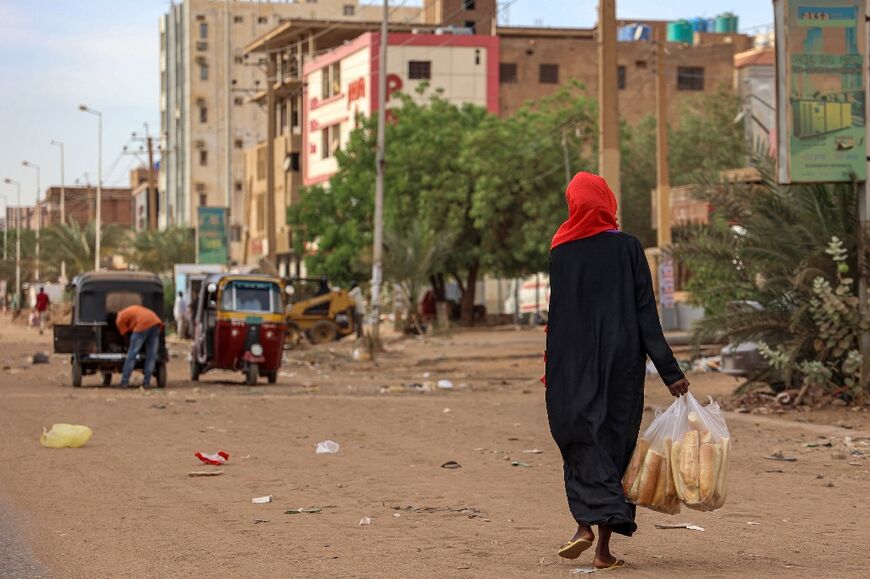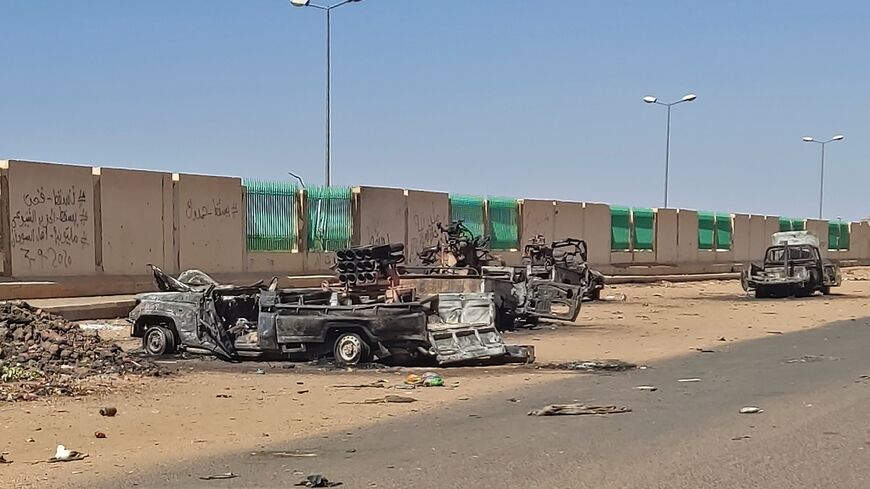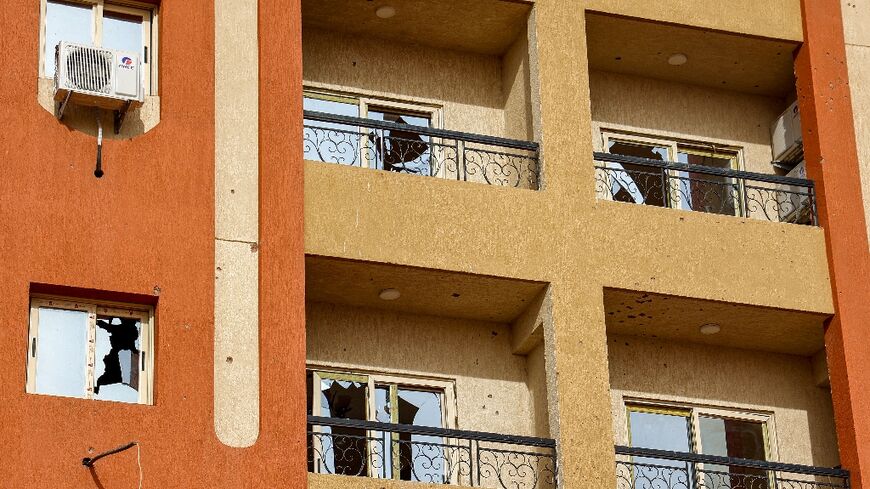Under fire, Sudanese civilians mobilize relief online

Trapped inside their homes for days as intense street battles rage between Sudan's rival generals, Khartoum's residents have banded together on social media offering aid, advice and support.
WhatsApp groups crowd-source needs, while medical professionals upload first-aid video tutorials, and others in the city of more than five million people work together to provide any support they can.
Like many Sudanese barricaded in their homes -- avoiding windows for fear of gunfire -- Twitter user Mujtaba Musa turned to social media, asking over 200,000 followers to "share calls for help" to "try to connect those in need."
Since fighting erupted on Saturday, with fighter jets launching air strikes in the city and artillery fire in densely populated areas, civilians have become increasingly desperate, with dwindling food supplies, power outages, and a lack of running water.
On Twitter, under the Arabic hashtags like #Khartoum_Needs, residents of each district have been mobilising support and solidarity.
On WhatsApp, hundreds of users joined a group to pool resources.
The messages are heart-breaking: Kholood needs baby formula, Hisham is looking for a car, and a third anonymous user pleads for a phone credit top-up to call his family.
Others provide advice: what to put in an escape bag, which doctors to call, or how to handle a panic attack.
- Gunshot wound tutorial -
The residents of Khartoum -- historically the safest city in Sudan even when brutal civil war ravaged in other states -- woke up on Saturday to find the conflict had come to their doorstep.
They have since spent the final days of the Muslim holy month of Ramadan sheltering as tanks roll through the streets, buildings shake and billowing smoke from fires triggered by the fighting turned the sky ashen grey.
Under years of international sanctions and failing infrastructure, Khartoum's residents are no strangers to dealing with power outages and rationing supplies.
But they could not have imagined having to shield their families from air strikes from the air force in the capital.
As the death toll climbed past 270 civilians, according to initial assessments, the doctors' union reposted a video tutorial to Facebook on first aid for gunshot wounds.
The union had first posted the advice in 2019, during the popular uprising that pushed the army to oust longtime military dictator Omar al-Bashir.
While authorities once cut internet access to block the world seeing proof of massacres, the generals are now locked in an information war, flooding social media with conflicting propaganda.
Resistance committees -- local informal groups that emerged during the 2019 protests against Bashir and continue to lead pro-democracy protests -- committed themselves to "monitor the situation on the ground" in each neighbourhood "to prevent rumours."
With many wounded unable to reach hospitals, which are themselves being shelled or trying to make do with severe shortages, local resistance committees also endeavoured to "form field clinics" wherever possible.
- Crowd-sourcing escape routes -
With both doctors and patients unable to get to hospitals, medical professionals have begun adding their information to a website called Khartoum Medical.
It includes their location -- if those in need can move on the dangerous streets -- as well their contact details to help other patients over the telephone or text.
With pharmacies closed since Saturday, it is not just those injured in the fighting needing help, but also those unable to get their regular medication, such as insulin.
"We should find a pharmacist, create a (WhatsApp) group, and send him prescriptions," Twitter user Khalid Saad suggested to his 80,000 followers.
One volunteer, he wrote, can get the medications, and everyone splits the cost.
Another widely shared posts calling for an ambulance to transport two dead bodies "whose car was hit by a rocket."
As staying put grows increasingly difficult with dwindling resources, venturing out risks getting caught in the crossfire.
When some took advantage of a brief lull in the fighting to make their way out of Khartoum, they reported the streets were littered with dead bodies.
Interactive maps and live updates aim to guide those trying to evacuate through streets with no fighting -- but all are carefully timestamped by the minute -- because things can change in a second.







